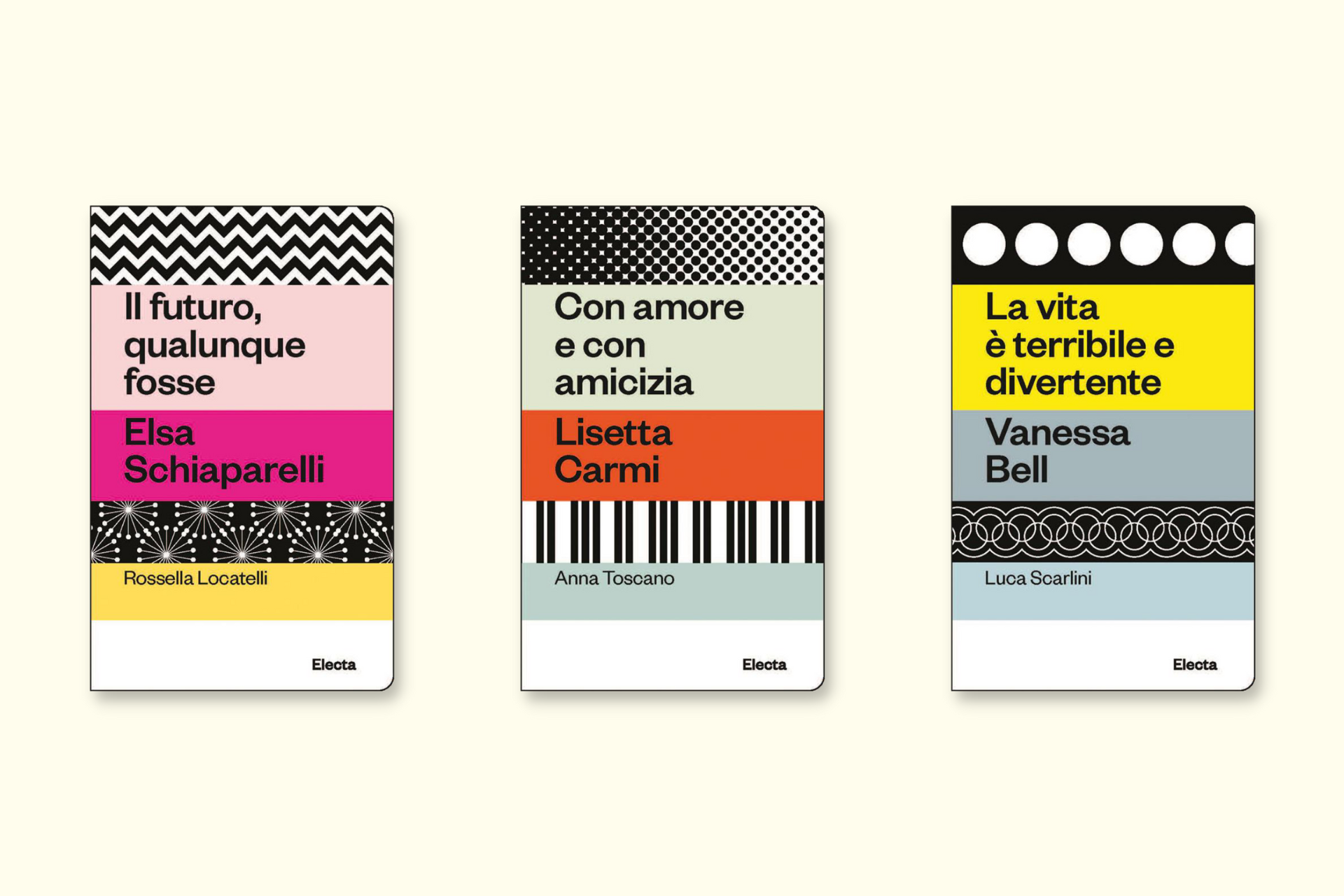Oilà, the new Electa series, in bookstores from March 8.
Electa launches Oilà for International Women’s Rights Day. Edited by Chiara Alessi, the new series portrays the stories of twentieth-century female figures who distinguished themselves in a male-dominated creative setting.
Electa presents Oilà, the new series, edited by Chiara Alessi, that tells the stories of twentieth-century female figures who distinguished themselves in the Italian and international creative setting (from design to fashion, architecture to music, illustrations to graphics, photography to literature) by practising disciplines and professions that had always been considered part of the male universe. The graphics are developed by Studio Sonnoli.
The first three titles, which will be simultaneously released on March 8, are dedicated to Elsa Schiaparelli, Lisetta Carmi and Vanessa Bell: three protagonists, three characters, three stories, three individuals stories that transformed the way of interpreting art, design, photography and fashion and that contributed to the social and artistic emancipation of women. The stories take place in the midst of wars, displacements and social revolutions, in a world, or profession, not considered suitable for women.

The books
The books, intended to be read aloud from beginning to end in forty-five minutes – a short journey – detail the stories of people’s biographies, jobs, private situations and public achievements. Small in format, with a defined layout and special cover for each individual title, the texts were entrusted to scholars, experts, writers and professionals. Each series begins with a story or anecdote on the life and profession of these women, digging into their childhood, family or sentimental relationships, based on the correspondence and diaries preserved in the archives, or on unpublished and unknown projects, to free women from preconceptions only aimed as seeing them as daughters, wives or sisters (such as Vanessa for Virginia Woolf).
And so, the series, or collection, of monographic readings based on the characters’ personal stories was created in the form of notebooks.
The title
The playful title of the series, Oilà, was taken from the famous verses of the socialist song La Lega [The League], which then became part of common italian women workers’ life. “Although we’re women, we’re not afraid, we have beautiful and nice mouths to defend ourselves. A oilì oilì oilà and our league will grow.”
Oilà is also a way to greet someone unexpected, the sound of someone caught by surprise. This series represents the voice and work of women.

Rossella Locatelli
The future, whatever it may hold. Elsa Schiaparelli
Elsa Schiaparelli’s circumstances seem like an ongoing struggle in the name of small freedoms. Alongside other women sharing this feeling. Fashion comes from instinct, revenge, necessity. Hers is a quick and absolutely spontaneous revolution. Although ironical or cruel at times, Schiap’s vision of fashion is closely linked to women’s obsessions and manias, or to a profound desire of independence. And… She is never alone in her fury.

Anna Toscano
With love and friendship. Lisetta Carmi
The hands, eyes and heart. Initially, Lisetta Carmi’s fingers run up and down the black and white keys of a piano, her eyes follow the keyboard from left to right, and her heart beats to the rhythm of a well-tempered harpsichord. Then, Lisetta Carmi’s fingers record and write the life of others through pictures. Pictures of people, streets, harbours, theatres, hospitals and cemeteries. Pictures of death and sex: of humanity Eyes and hearts to help her understand both others and herself. With love and friendship.

Luca Scarlini
Life is terrible and fun. Vanessa Bell
Vanessa Bell is always available for others: her husband, Clive Bell, despite his betrayals and critical mindset towards the artist’s life; Duncan Grant, the love of her life and colleague, who is however attracted by men; Omega Worshop, which according to its founder and financier, Roger Fry, wants to suppress the cult personality of her representatives; her sister, Virginia Woolf, through whom her work as an artist, graphic designer, decorator and illustrator is always interpreted. Vanessa Bell is there for others, those close to her have never jeopardised her art, on the contrary, they’ve fed it.